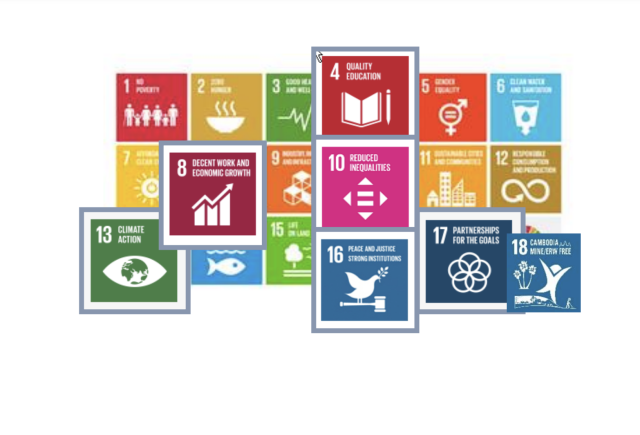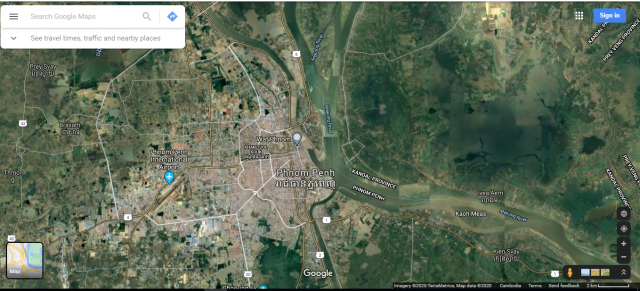Cambodia: Institutional Challenges of Sub-National Governments in Localizing SDGs

- By Cambodianess
- June 5, 2023 3:07 PM
Sustainable Development Goals (SDGs) refer to the set of global agenda adopted by the United Nations in 2015, inteding to provide a guidance for international efforts toward sustainable development by 2030. Although the implemtation of SDGs is universal, their scope lies beyond the international and national levels as the stakeholders are citizens residing at every corner of the earth. Therefore, the role of government at the district and communal level is vital to deliver the benefits of SDGs to all communities. Still, they face institutional challenges that hinder the performance of SDGs localisation.
The SDGs are a set of goals adopted at the United Nations General Assembly in 2015 to transform our world by 2030 comprehensively. These set goals have been used to provide governments, civil society, businesses, and individuals to work together to create a sustainable and equitable future for all. The "whole of society" approach is key for all to benefit from the SDGs. Not only are Sub-national governments (SNGs) essentially in the implementation of the SDGs localisation project, but they are the frontline actors and policymakers in setting the trajectories of the SDGs agenda.
However, the Royal Government of Cambodia has yet to set out the national policy on SDGs localisation, which unfortunately entails the implementation of SDGs projects at the national level. This opposes the global understanding, which is the "process of defining, implementing and monitoring strategies at the local level for achieving global, national, and subnational sustainable development goals". However, at the ASEAN Mayor Forum, this understanding has shifted towards building sustainable and smart cities, recognising the role of cities in localising SDGs. Currently, the subnational government in Cambodia struggles against the limited budget, infrastructure, and power to effectively boost economic activities compared to the capital city.
Despite such commitment of the ASEAN Mayor Forum, challenges at the national level have consequences on the performance of SNGS in the localisation process. One of the many approaches to promoting better public service delivery is decentralisation, which transfers financial resources and decision-making power from the central government (such as ministries) to the sub-national level. Decentralisation helps bolster the efficiency of public service delivery and brings the effectiveness of decision-making power closer to those affected by it.
The institutional challenge at the national level can impact the SNGs tremendously. The contestation between the Ministry of Interior (MOI) and the Ministry of Economy and Finance (MEF) slows the decentralisation process. As key players in political decisions, authority and financial resources, they are key ministries at the centre of this debate. MOI leads the decentralisation project, as it chairs the National Committee for Sub-National Democratic Development (NCDD). The MEF, on the other hand, adopts a relatively gradual approach to fiscal decentralisation. This entails that the Provincial Department of the Economy and Finance may reject all activities proposed by the subnational governments. Thus, the actions that may contribute to SDGs can be limited.
The institutional structure limits the capacity to localise SDGs at the sub-national level. Generally, the provincial governor holds great power in developing the sub-national government. This is because, at the provincial level, investment projects require the approval of the provincial administration. The concentrated power at the provincial level does limit the scope of lower-level governments in implementing various projects. Moreover, as the national policy of SDGs localisation does not directly address the role of local government, there needs to be more clarity regarding who should deliver projects according to SDGs.
At the Commune and Sangkat level of governance, on the other hand, there is an elected board, and they are the closest to delivering public services. However, this level's financial resources, human capital, and political voice are significantly limited. The decentralisation in Cambodia may still need to be ready to delegate many functions and autonomy to governance at such a level. Nevertheless, they should still be recognised as the main actors in effectively carrying out SDG activities.
The effort and achievements of a subnational government within this structural setup cannot be disregarded. To a large extent, local governments are effective and capable of service delivery and setting the trajectories of SDGs. However, to implement SDGs effectively at the local level, the decentralisation process should be further pushed forward, especially within the context of SDGs localisation.
The current structural setup significantly limits the financial capacity of subnational governments to implement their activities. This limits the economic activities of the provinces and districts and the ability to carry out capacity-building programs that further enrich their knowledge of good governance.
Prime Minister Hun Sen has emphasised in his opening remark at the ASEAN Mayor Forum 2022 that cities also play significant roles in addressing regional and global challenges, primarily through the potential of smart cities in the ASEAN region. This political recognition of the local government's potential is a hopeful prospect for decentralisation in Cambodia. However, more than smart cities alone will be required to meet the 2030 SDG Agenda. Therefore, the local government shall be at the heart of SDGs localisation to deliver SDGs' benefits to all citizens and to leave no one behind.
Edited by: Chansok LAK, Senior Lecturer, IISPP
Written by: Sithis Yin Samnang, a fellow of the Adenauer Young Scholars for Excellence Fellowship 2023
Disclaimer: The views presented in this commentary do not necessarily reflect those of the editors, the program, and/or the Konrad-Adenauer-Stiftung Cambodia and Institute for International Studies and Public Policy of the Royal University of Phnom Penh.















